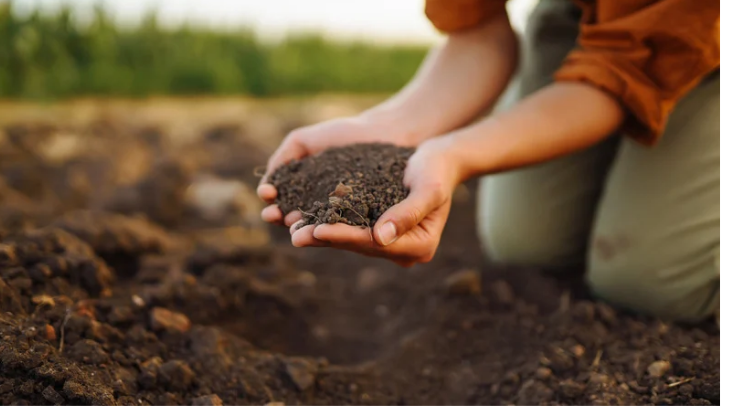In agriculture, soil is not just dirt, it is the foundation of all life. For farmers who want to produce export quality fruit and vegetables, soil health is of paramount importance. Quality products that meet international standards start with fertile, balanced and well-managed soil. Let’s look at why soil health is important and how it impacts the quality and sustainability of agricultural exports.
Why Soil Health is Important
Healthy soil is rich in organic matter, nutrients and beneficial microorganisms that promote plant growth. This is the most important support for crops, ensuring they receive the nutrients and water they need for optimal development. Healthy soil is a vital component for export quality products which must meet strict quality standards.
Key Benefits of Healthy Soil:
1. Nutrient Rich Crops: Soil with a balanced content of nutrients such as nitrogen, phosphorus and potassium helps fruits and vegetables reach their full potential in size, colour and flavour.
2. Disease Resistance: Healthy soil promotes strong immunity in plants and reduces reliance on chemical treatments that can leave harmful residues.
3. Longer Shelf Life: Products grown in fertile soil tend to have a longer shelf life, an important criterion for export.
4. Environmental Sustainability: Healthy soil absorbs carbon, reduces erosion and stores water, making agricultural practices environmentally friendly and sustainable.
Soil Health Measures for Export Quality Products
To maintain healthy soils, farmers need to adopt sustainable agricultural practices. These techniques not only improve soil fertility but also ensure compliance with international standards on residue levels and environmental safety.
1. Organic Additives
Adding compost, fertiliser and other organic materials enriches the soil with nutrients and improves its structure. This reduces the need for synthetic fertilisers and ensures that products are free of harmful chemicals.
2. Crop Rotation and Catch Crops
Crop rotation and growing catch crops such as legumes and clover can help restore soil fertility and prevent nutrient deficiencies. These practices also suppress weeds and reduce the risk of pests.
3. Integrated Pest Management (IPM)
Healthy soil naturally supports beneficial microorganisms that control pests and diseases. The IPM approach reduces reliance on synthetic pesticides and ensures products meet export safety standards.
4. Testing and Monitoring
Regular soil testing helps farmers identify nutrient deficiencies or imbalances. With accurate data, they can adjust fertilizer applications to meet the crop’s needs without overstressing the soil.
5. Precision Agriculture
Modern methods such as GPS-controlled fertilization and irrigation minimize waste and optimally use soil resources. Precision agriculture also supports compliance with environmental regulations.
Soil Health and Global Market Demands
International buyers of fruits and vegetables are increasingly focused on sustainability and quality. Healthy soil plays a direct role in meeting these expectations:
- Compliance with Residue Levels: Export markets often have strict regulations on pesticide and chemical residue. Healthy soil reduces dependency on agrochemicals, ensuring safe produce.
- Superior Taste and Appearance: Consumers value taste, texture, and visual appeal, all of which are influenced by soil quality.
- Traceability and Sustainability: Buyers seek produce from farms that follow sustainable practices. Maintaining soil health aligns with global environmental goals.
For farmers aiming to produce export-grade fruits and vegetables, soil health is the cornerstone of success. It influences crop yield, quality, and marketability, while also contributing to environmental sustainability. By investing in soil health through organic practices, precision agriculture, and regular monitoring, growers can meet the demands of international markets while preserving the earth for future generations.
At Freshly Picked, we prioritize soil health to ensure our export produce—from ginger to pomegranates—meets global standards. By working with many farmers and using sustainable practices, we strive to deliver fresh, high-quality fruits and vegetables to markets worldwide. Together, let’s nurture the soil that nurtures us all!

